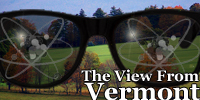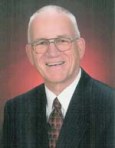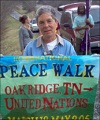Vermont Yankee supporters at anti-nuke book tour
 On Tuesday, August 7, I attended a book tour event sponsored by a New England anti-nuclear group. The event's title that first appeared on the group's website was "Fukushima: Nuclear Power's Gift to the Planet." By the end of the four-state book tour, the title had been changed to match the book, "The Devil's Tango: How I Learned the Fukushima Step by Step" (publisher's website), by Cecile Pineda. As stated during the presentation, the book tour was planned around August 6, the 67th anniversary of the Hiroshima bombing in World War II. Pineda's presentation contained all the standard anti-nuke issues, and a few new wrinkles as well.
On Tuesday, August 7, I attended a book tour event sponsored by a New England anti-nuclear group. The event's title that first appeared on the group's website was "Fukushima: Nuclear Power's Gift to the Planet." By the end of the four-state book tour, the title had been changed to match the book, "The Devil's Tango: How I Learned the Fukushima Step by Step" (publisher's website), by Cecile Pineda. As stated during the presentation, the book tour was planned around August 6, the 67th anniversary of the Hiroshima bombing in World War II. Pineda's presentation contained all the standard anti-nuke issues, and a few new wrinkles as well.
The author
Pineda is an author of several published novels, which have contained a persistent theme of the "nuclear cycle" according to her website. At the book tour event, she recounted her memories of the day the bomb was dropped on Hiroshima. She made her comments while visiting Northfield, Mass., which is in the emergency planning zone for the Vermont Yankee plant. Her decision to write Devil's Tango was made a few days after the accident at Fukushima-Daiichi began, she said, and it was published on the first anniversary of the start of the accident.
The venue
The meeting was hosted by the Upper Valley Sierra Club, at the Howe Public Library, in Hanover, N.H. Arriving early, I was greeted by the program chair, whom I have known for several years. We have a cordial relationship, and he tries to see both sides of issues. I handed him a copy of the World Health Organization's spring news release on the radiation doses outside the Fukushima evacuation zone, which reported up to 10 milliseivert, an insignificant amount. That's one example of the value of continuing to show up at events such as this: One can make contact with those who remain open-minded, even if they already have a definite opinion.
The banner on the meeting room wall behind the speakers read: "Entergy = Fukushima." In all, 38 persons attended the meeting, including board members of national anti-nuclear organizations. One of them greeted a friend as "All the way from Rutland County"-70 miles or more.
The presentation
The program chair opened the meeting, and reminded everyone that not all present shared the same opinion, and thus to be respectful. He then turned it over to Hattie Nestel, an avid anti-nuclear activist and frequent arrestee from Massachusetts.
She stated that the tour was set up to reach four states with reactors in nine days (in Vermont, Vermont Yankee; in New Hampshire, Seabrook; in Massachusetts, Pilgrim; and in New York, Indian Point.) Hattie's car, with its No Nuke paint job, was parked outside. She introduced author Pineda.
Pineda began by asking everyone to introduce themselves and their affiliation. Her presentation consisted of three rounds of speaking about a topic, then reading from her book. This was followed by a brief question-and-answer session. Copies of the book were for sale and would be autographed. Also available were DVDs, including one featuring her interview on Channel 17's Town Meeting Television, as well as anti-nuclear literature and buttons.
Points raised
- The Sierra club now has an agenda against nuclear power.
- Nuclear power is linked to Hiroshima and Fukushima.
- A Japanese woman on a speaking tour in California said that the Japanese live with anxiety all the time.
- Nuclear power is a technology that has never learned to resolve itself.
- There is no way to solve the waste problem.
- Yucca Mountain failed. There was a demonstration where the proposed drip shields were immersed in water similar to that in the mountain and they quickly corroded.
- The U.S. Center for Disease Control did a study that showed a 35-percent increase in infant mortality in several cities in the northwestern United States after the Fukushima accident.
- Vermont is in the fallout from Fukushima-it is a planetary disaster.
- We are waiting for the other shoe to drop at Fukushima, where the Unit 4 fuel pool is collapsing. If it does, Tokyo and Yokohama will be uninhabitable.
- The GE MK I reactor plants were sold knowing that there is a 90-percent chance of failure.
- The Japanese forgot that there are tsunamis in the Fukushima area. They even cut down a protective bluff where the plants are located.
- There have been 200,000 people in Tokyo protesting the restart of nuclear power plants. We are as good as the Japanese when it comes to activism to shut down nuclear power. Get active.
- There is a nuclear war going on now! Using depleted uranium ammunition, Iraq is contaminated for all eternity. In hot spots, there is a 15 percent rate of birth defects.
- We all "channel." Children know, but as we become adults, we are convinced that it is not so.
- Outside the evacuation zone around the Fukushima plants, 30 percent of the children have thyroid cysts.
- Nuclear power and fossil waste are for all eternity.
- There is a French movement to shut down nuclear power plants.
- There are cancer clusters around the La Hague reprocessing plant.
- Vermont politicians care about our safety. But President Obama has increased the amount spent on nuclear power.
- The MK I plants have put the "bath tub in the attic [spent fuel pools]."
- A TV set uses the most power in your home. It muddles your brain. Turn it off. Visit people. Stop using computers so much!
This was a typical "anti nuke" presentation, appealing to emotion, and using scare stories. It is wrong on the facts, as science knows them (just to begin with, if an isotope is radioactive, it does not last forever...)
Coverage of other stops on this tour
On Monday, August 6, Richard Schmidt of Westmoreland, N.H., a fellow pro-nuclear activist, attended the book tour presentation in Brattleboro, Vt., at the Center Congregational Church.He was there early and handed out his "Important Facts about Vermont Yankee" fact sheet. He used green paper to aid in tracking its circulation. He spoke to about 15 of the 25 in attendance, which included tourists and some receptive young people.
Also, on Thursday, August 9, Dr. Sam Martin, a colleague in the American Nuclear Society Northeastern Section, attended the presentation at the Harwich, Mass., Community Center. It was hosted by the Cape Downwinders (Cape Cod is down wind from the Pilgrim plant at Plymouth, Mass., across the bay. There are two bridges to Cape Cod, and vacation traffic is often backed up. Some residents on "the Cape" feel that evacuation in the event of an accident and release from the plant would be impossible.)
Sam had a cordial exchange with the head of the organization. But when a question was asked about the reconstruction of Hiroshima and Nagasaki, author Pineda went off on a tangent, Sam felt, and he commented, "You're not answering the question." After the presentation, Sam continued to try to communicate with others in attendance, but he reported that some at the event would not even look him in the eye.
_______________________________

Shaffer
Howard Shaffer has been an ANS member for 35 years. He has contributed to ASME and ANS Standards committees, ANS committees, national meeting staffs, and his local section, and was the 2001 ANS Congressional Fellow. He is a current member of the ANS Public Information Committee and consults in nuclear public outreach.
He is coordinator for the Vermont Pilot Project. Shaffer holds a BSEE from Duke University and an MSNE from MIT. He is a regular contributor to the ANS Nuclear Cafe.
____________________



